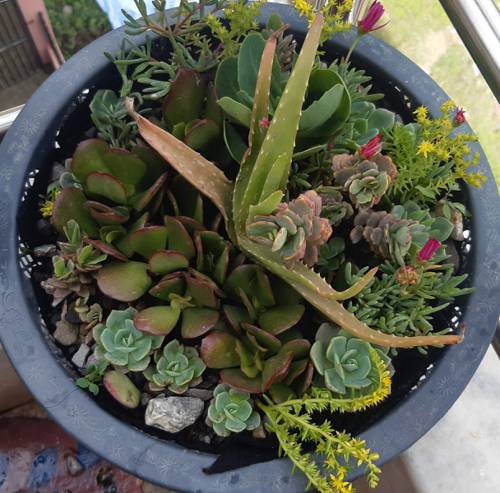
FAQ About Indoor Plant Wild Harvesting Ethics

What are the ethical considerations when wild harvesting indoor plants?
Ethical considerations include ensuring the preservation of natural ecosystems, respecting local laws and regulations, and maintaining biodiversity. Harvesting should not threaten plant populations or habitats, and should be done sustainably to avoid environmental degradation.

Why is sustainable harvesting important for indoor plants?
Sustainable harvesting is crucial to prevent the overexploitation of wild plant populations. It ensures long-term availability and protects natural habitats from damage, which supports the health of the ecosystem and local biodiversity.

How can I identify if a plant is appropriate for indoor wild harvesting?
Before harvesting, research the plant species to determine its abundance and legality of collection. Consult local guidelines or environmental organizations. Only harvest from populations that are healthy and existing in abundance, taking care to minimize the impact on their natural environment.

What laws regulate wild harvesting of plants?
Regulations regarding wild harvest vary by region. Many areas have specific laws to protect endangered species, and international regulations like CITES protect globally threatened plants. Checking with local forestry or environmental agencies can provide specific guidelines.

Are there benefits to harvesting indoor plants from the wild?
While wild harvesting might be seen as beneficial for minimizing purchasing costs, it can potentially disturb natural ecosystems if not done responsibly. The benefits must weigh carefully against any possible ecological impacts.

What are the risks associated with over-harvesting indoor plants?
Over-harvesting can lead to the depletion of plant species, disrupt local ecosystems, and lead to loss of biodiversity. It may also cause erosion and degradation of habitats, affecting other forms of wildlife dependent on those plants.

Can wild-harvested plants be sustainably integrated into indoor environments?
Yes, with thoughtful consideration to their natural growing conditions and ensuring their collection did not harm their native ecology. Provides adequate care similar to their natural habitat requirements once indoors.

How can individuals contribute to plant conservation despite wild harvesting?
Individuals can contribute by educating themselves, participating in regulated plant collection programs, and supporting conservation organizations. Avoid collecting endangered species and always opt for propagated alternatives whenever possible.

What role do nurseries play in ethical plant acquisition?
Nurseries can play a significant role in ethical plant acquisition by offering propagated plants rather than wild-harvested ones. They often ensure a larger supply of plants while safeguarding wild populations from over-exploitation.

What is the impact of urbanization on wild plant harvesting?
Urbanization can increase pressure on wild plant populations by diminishing their natural habitats and creating easy access for unauthorized harvesting. This exacerbates the risk of exploitation and can lead to significant ecological damage.

Is it possible to propagate wild plants instead of harvesting them?
Yes, propagation is a sustainable alternative to wild harvesting. It involves growing new plants from cuttings, seeds or other plant parts, which can help conserve natural populations and reduce environmental impact.

What precautions should be taken when removing plants from the wild?
Precautions include ensuring the plant is not protected or rare, harvesting responsibly by taking small amounts, and never removing entire plants unless absolutely sustainable. Also, avoid disturbing the surrounding habitat.

How does wild harvesting affect local biodiversity?
Wild harvesting can negatively affect local biodiversity by reducing plant populations necessary for the survival of other species. This can disrupt food chains and lead to the imbalance of local ecosystems.

What are the long-term effects of unethical wild plant harvesting?
Unethical wild plant harvesting can lead to extinction of species, habitat destruction, and loss of biodiversity. It also disrupts ecological balance and reduces the availability of plants for future generations.

How can I verify if a plant species is endangered?
Consult resources like the International Union for Conservation of Nature (IUCN) Red List, or national databases. These provide updated information on the conservation status of plant species globally.

How do I know if I am legally allowed to harvest a plant?
Verify with local environmental authorities or governmental agricultural departments. They provide permits or licenses needed for legally permissible harvesting, along with guidelines to follow.

What are alternative sources for acquiring indoor plants without wild harvesting?
Alternative sources include buying from reputable nurseries, plant swaps, online plant communities, and botanical gardens that offer propagated specimens. Such methods support conservation and provide more sustainable options.

What is the role of indigenous knowledge in sustainable harvesting practices?
Indigenous knowledge offers insights into sustainable practices and ecological balance, as it often includes centuries-old techniques of plant management that ensure conservation. Respecting and integrating these practices can enhance sustainability.

Can illegal plant trade be curtailed by better wild harvesting practices?
Yes, responsible and regulated wild harvesting can help reduce illegal plant trade by providing legal, sustainable alternatives. Additionally, raising awareness and enforcement of conservation laws can deter illegal activities.

What is the difference between wild crafting and wild harvesting?
Wild crafting is a broader term encompassing the collection of all wild elements, such as plants, mushrooms, and herbs, typically for medicinal or culinary use. Wild harvesting specifically refers to plants gathered for domestic or personal cultivation.
